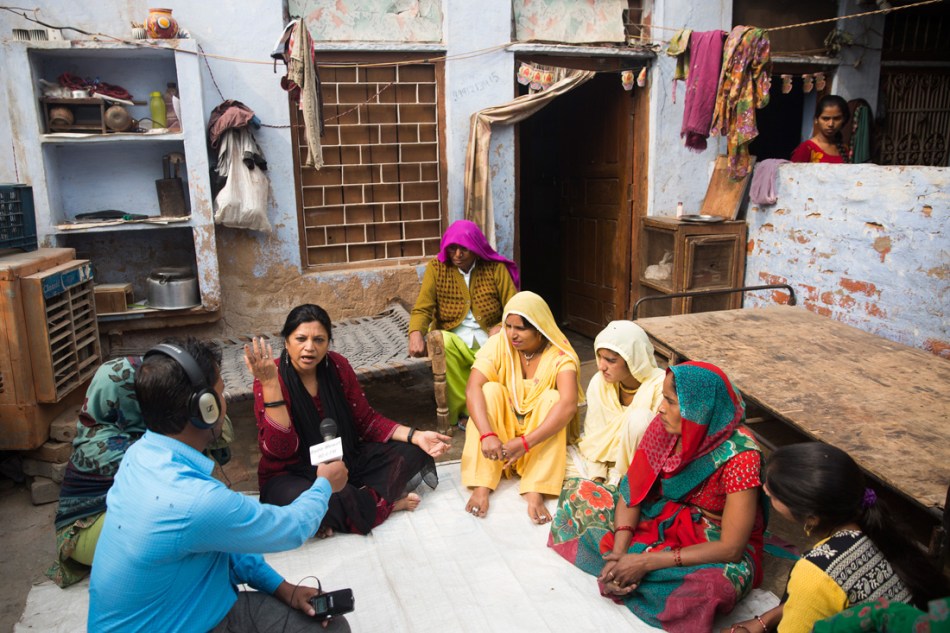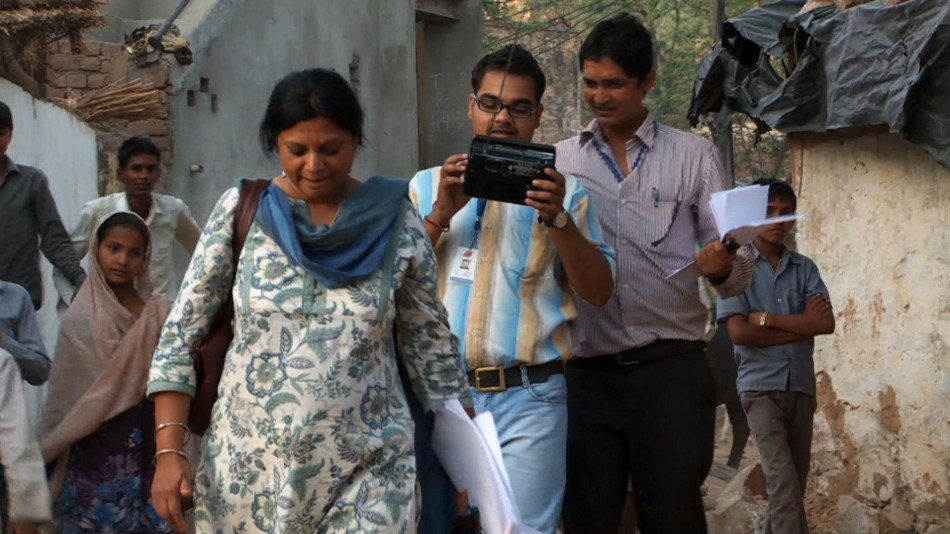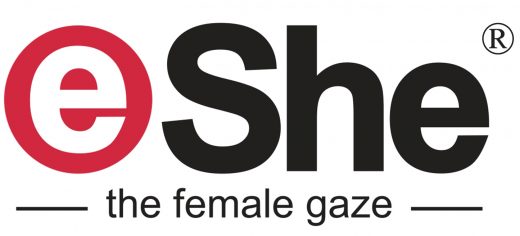By Neha Kirpal
When the Government of Haryana issued an advisory 11 years ago that it would no longer work with non-governmental organisations (NGOs), Archana Kapoor and her team of social workers – who had been working towards education and livelihoods in 100 Haryana villages at the time – were devastated. The Delhi-based publisher, filmmaker, author and activist had to figure out some other way to continue working with rural communities.
Just then, she came across an article that said the Government of India had opened up the community radio sector to NGOs. She applied for a license, and in September 2010, Radio Mewat was born.
Today, it is a National Award-winning community radio initiative that has brought to the fore unheard voices of the most vulnerable and marginalised sections of society, and has become a powerful tool for empowerment. It has been featured extensively in both national and international media for its innovative programming, and in journals brought out by UNICEF and UNESCO.
 In a place like Mewat where only 10 per cent of households own a TV, the radio still has relevance – and anyone with just a feature phone can access Radio Mewat for free.
In a place like Mewat where only 10 per cent of households own a TV, the radio still has relevance – and anyone with just a feature phone can access Radio Mewat for free.
“If you ask people whether they listen to the radio, most of them say no. But if you ask them whether they listen to Radio Mewat, they will say yes,” smiles Archana, whose goal is to educate the community about their choices, whether it’s to do with consumer rights, financial inclusion, Panchayats, health, education or livelihoods.
Over nine years, the struggles have been many. “We were worried about acceptance by a community that was inward-looking and resisted outsiders and the media. What many of us take for granted – access to schools, quality education, potable water, well equipped hospitals – are all a struggle for this community,” explains Archana.
 Further, policy guidelines were so constrictive that a lot of content that had a direct connect with the people and their lives could not be broadcast. “Mewat is a troubled place. In the past few years we have seen incidents of double murder and double rape, the lynching of Pehlu Khan and Junaid Khan, who was a student at a madrasa in Mewat, and Rakbar Khan. Despite being a community radio, we could not broadcast anything about these incidents,” says Archana.
Further, policy guidelines were so constrictive that a lot of content that had a direct connect with the people and their lives could not be broadcast. “Mewat is a troubled place. In the past few years we have seen incidents of double murder and double rape, the lynching of Pehlu Khan and Junaid Khan, who was a student at a madrasa in Mewat, and Rakbar Khan. Despite being a community radio, we could not broadcast anything about these incidents,” says Archana.
In fact, when some of the community members – who also do programmes in Radio Mewat – participated in a protest, the radio station faced flak on their behalf. “The District Collector called me up and threatened to pull down our antenna and throw the computers out if we did not prevent our boys from protesting. When I told him that they were members of this community, living in a democracy and have the right to do dharnas or protests, I was told that no one knew them before they came to Radio Mewat!” Archana shares.
 In an attempt to be inclusive, her team also faced challenges in getting women to the station. “Women were willing to work with the NGO but not the radio,” recalls Archana. The first Meo woman reporter, as they are called, was shy and hesitant for a long time before she could go on air independently.
In an attempt to be inclusive, her team also faced challenges in getting women to the station. “Women were willing to work with the NGO but not the radio,” recalls Archana. The first Meo woman reporter, as they are called, was shy and hesitant for a long time before she could go on air independently.
She was constantly pressured by her parents not to work, as she was still unmarried in her 20s. She had to wake up at 4 am, complete household chores and then travel 23 km to reach office by 9 am, and later go home and cook. She would have to face snide remarks from her family members and even her colleagues that no one would marry her because her voice was known to all. In Mewat, young women can be seen but not heard.
With Archana’s help, the young reporter went on to host a health and nutrition show for women, and within three years felt empowered enough to even stand for Panchayat elections. Today she is a role model for many.
 Radio Mewat continues to inspire the community it caters to. They use it as a platform to share their concerns, stories and achievements, to learn from each other and to be heard. Repeated demands from the community and airing of grievances have forced even the local authorities to provide answers.
Radio Mewat continues to inspire the community it caters to. They use it as a platform to share their concerns, stories and achievements, to learn from each other and to be heard. Repeated demands from the community and airing of grievances have forced even the local authorities to provide answers.
“Transparency in governance has increased. We launched a consumer helpline and registered 48 cases with consumer courts. Panchayats have been made more accountable about releasing MNREGA funds. For the first time in the history of Mewat, Gram Sabhas were held. This happened only after a sustained intervention through the community radio station,” avers Archana.
The station also offers a free tuition space every afternoon for students of classes sixth to tenth, and has been working for financial inclusion by interventions to help people open bank accounts.
Plans are afoot to turn Radio Mewat into a hub of education, culture and entertainment. “It is a difficult climb, but we have managed to accomplish many of our objectives that seemed impossible when we started out,” reasons Archana. Radio still rules.
First published in eShe’s June 2019 issue
Syndicated to CNBCTV18


Pingback: Story Of A Brave Heart And A Cancer Survivor: An Interview With Archna Kapoor - Zuvius Lifesciences